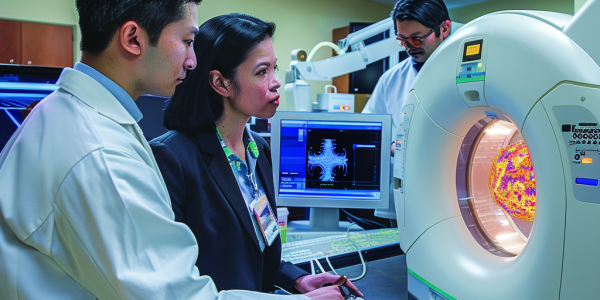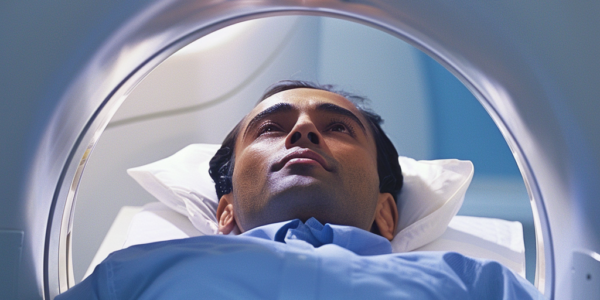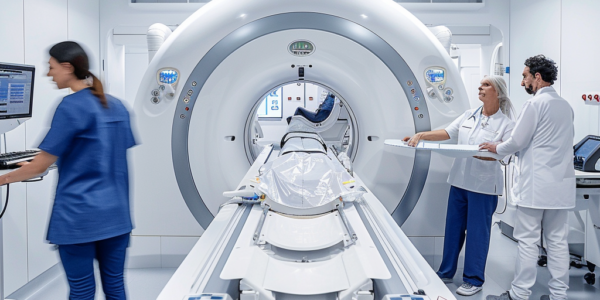Breakthrough MRI Technology Predicts Ovarian Cancer Treatment Response
A groundbreaking study from the University of Cambridge reveals a revolutionary MRI-based imaging technology, hyperpolarized carbon-13 imaging, that can predict ovarian cancer tumor responses to treatment. This innovative method enhances MRI signals by up to 10,000 times, enabling rapid assessments of treatment effectiveness, distinguishing between tumor subtypes, and personalizing cancer care. With the ability to evaluate responses to chemotherapy within 48 hours, this advancement promises to transform ovarian cancer treatment and improve patient outcomes.
Revolutionizing Prostate Cancer Diagnosis with PSMA-PET Imaging
Discover the future of prostate cancer diagnosis with PSMA-PET imaging, as Dr. Brian T. Helfand highlights advancements in imaging technologies that promise earlier detection and personalized treatment strategies. Learn how innovative radiotracers and a deeper understanding of tumor biology are set to revolutionize urologic oncology.
Groundbreaking Dementia Prediction Method Discovered by International Research Team
Groundbreaking research led by Queen Mary University of London has developed a new method to predict dementia up to nine years before diagnosis with over 80% accuracy. By analyzing changes in the brain’s ‘default mode network’ using fMRI scans, this innovative approach could revolutionize dementia treatment by allowing for earlier interventions and personalized healthcare strategies.
MRI Scans Offer More Accurate Detection of Heart Disease in Women
Learn how MRI scans may offer more accurate and early detection of heart disease in women compared to other diagnostic tools. A recent study found that MRI scans produced more precise images than invasive assessments, potentially revolutionizing the early detection of heart failure in women.
Groundbreaking Finding in Prostate Cancer MRI Scans
Groundbreaking research in prostate cancer diagnosis reveals that reducing the duration of MRI scans by a third could make them more affordable and accessible without compromising accuracy. The Prime trial found that dropping the third stage of the scan did not hinder the detection of prostate cancers, making the shorter two-stage scans almost 50% cheaper and quicker. This development has the potential to improve outcomes for patients and enable more men to undergo necessary diagnostic procedures.
European Contrast Media Agent and Injector System Market Experiencing Significant Growth
The European contrast media agent and injector system market is projected to reach $2,740.6 million by 2026, driven by factors such as the increasing prevalence of chronic diseases, rising demand for diagnostic imaging procedures, and advancements in medical imaging technologies. Regulatory initiatives, ongoing research and development activities, and the presence of key players in the market are also contributing to this growth. The report ‘Europe Contrast Media Agent and Injector System Market: Analysis and Forecast: 2022-2026’ offers valuable insights for organizations operating in this sector.
Innovative Breast Imaging Technique Shows Promise in Detecting Cancer
A new breast imaging technique, low-dose positron emission mammography (PEM), has been found to provide high sensitivity for detecting cancer while significantly reducing the likelihood of false positive results. The study suggests that PEM could revolutionize breast cancer detection and potentially offer more reliable screening for a broader range of patients, with comparable performance to MRI but at a lower false positive rate and with a radiation dose comparable to that of traditional mammography.







